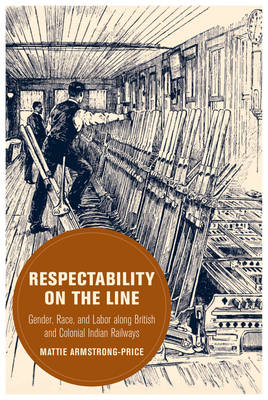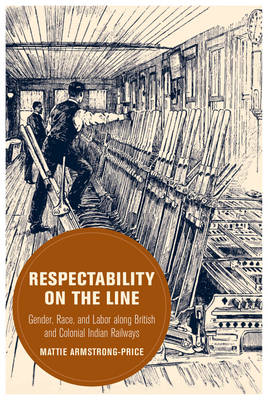
Bedankt voor het vertrouwen het afgelopen jaar! Om jou te bedanken bieden we GRATIS verzending (in België) aan op alles gedurende de hele maand januari.
- Afhalen na 1 uur in een winkel met voorraad
- In januari gratis thuislevering in België
- Ruim aanbod met 7 miljoen producten
Bedankt voor het vertrouwen het afgelopen jaar! Om jou te bedanken bieden we GRATIS verzending (in België) aan op alles gedurende de hele maand januari.
- Afhalen na 1 uur in een winkel met voorraad
- In januari gratis thuislevering in België
- Ruim aanbod met 7 miljoen producten
Zoeken
Respectability on the Line
Gender, Race, and Labor Along British and Colonial Indian Railways Volume 24
Mattie Armstrong-Price
€ 38,95
+ 77 punten
Uitvoering
Omschrijving
Respectability on the Line offers a social and cultural history of railway labor in Britain and colonial India from the 1840s through World War I. The book treats the railway industry as a microcosm through which to study the history of capitalism in the liberal imperial era. Using company records, Mattie Armstrong-Price shows how executives shaped the domestic and working lives of higher-grade employees with an eye to cultivating their respectability. Meanwhile workers' writings reveal how railway towns provided opportunities for some employees to maintain non-heteronormative living arrangements. The book tracks these histories of everyday life while also outlining stories of early trade unionism. In Britain, railway unionists established benefit funds that mimicked company-sponsored provident funds, while in colonial India workers fought to gain access to company benefits on equal terms. This comparative study shows how industrial labor was made through conflict, subversion, and accommodation across an uneven imperial field.
Specificaties
Betrokkenen
- Auteur(s):
- Uitgeverij:
Inhoud
- Aantal bladzijden:
- 234
- Taal:
- Engels
- Reeks:
Eigenschappen
- Productcode (EAN):
- 9780520421561
- Verschijningsdatum:
- 24/02/2026
- Uitvoering:
- Paperback
- Formaat:
- Trade paperback (VS)
- Afmetingen:
- 152 mm x 229 mm

Alleen bij Standaard Boekhandel
+ 77 punten op je klantenkaart van Standaard Boekhandel
Beoordelingen
We publiceren alleen reviews die voldoen aan de voorwaarden voor reviews. Bekijk onze voorwaarden voor reviews.









